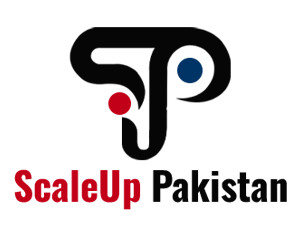Introduction
Elon Musk, CEO of Tesla, SpaceX, and owner of X (formerly Twitter), has ignited a firestorm by accusing governments and media organizations of manipulating the platform’s fact-checking tools to “control narratives” and suppress information. The claims, made via Musk’s posts on X, have reignited global debates about free speech, censorship, and the role of powerful institutions in shaping digital discourse. This article unpacks Musk’s allegations, the context behind them, and their implications for the future of online transparency.
Musk’s Allegations: A Breakdown
- Claims of Collusion:
Musk alleges that governments and media entities are exploiting X’s fact-checking system to silence dissenting voices, particularly on contentious issues like elections, public health, and geopolitical conflicts. He argues this undermines the platform’s mission as a “digital town square” for unfettered free speech. - Targeting Fact-Checking Partners:
While not naming specific organizations, Musk hinted at third-party fact-checkers and legacy media collaborators, suggesting they inject bias into moderation decisions. This follows X’s 2023 shift to a “Community Notes” system, which crowdsources fact-checks, but critics argue it remains vulnerable to manipulation. - Political Motivations:
Musk linked the alleged interference to upcoming elections in the U.S. and EU, claiming “elite actors” aim to sway public opinion by labeling certain content as “misinformation.”
Context: X’s Content Moderation Under Musk
- Free Speech vs. Moderation: Since acquiring Twitter in 2022, Musk has dismantled much of its prior moderation infrastructure, reinstating banned accounts (e.g., Donald Trump) and slashing trust-and-safety teams. However, advertisers and regulators have pressured X to curb hate speech and misinformation, leading to accusations of inconsistent policies.
- Community Notes Controversy: X’s user-driven fact-checking tool, while innovative, has faced criticism for slow response times and partisan skew. Musk’s latest claims suggest external forces are exploiting these gaps.
Reactions: Support, Skepticism, and Backlash
- Free Speech Advocates: Figures like Edward Snowden praised Musk for “exposing institutional overreach,” while libertarian groups framed the allegations as proof of “state-corporate censorship.”
- Fact-Checking Organizations: The International Fact-Checking Network (IFCN) rejected Musk’s claims, stating, “Fact-checking is about accuracy, not control. These accusations endanger trust in credible journalism.”
- Governments and Regulators: The EU’s Vera Jourová warned Musk’s rhetoric risks violating the Digital Services Act (DSA), which mandates platforms combat disinformation. Meanwhile, the U.S. FTC is investigating X for lax moderation practices.
Implications: Trust, Misinformation, and Power
- Erosion of Trust: Musk’s accusations could deepen public skepticism toward both institutions and tech platforms, fueling conspiracy theories.
- Regulatory Reckoning: If proven, government manipulation of fact-checking tools might trigger legal battles over free speech and state overreach. Conversely, if Musk’s claims are baseless, X could face penalties for DSA non-compliance.
- Platform Governance: The debate highlights tensions between Musk’s vision of absolute free speech and societal demands for responsible content moderation.

The Bigger Picture: Global Trends
- Authoritarian Leverage: Autocratic regimes like Russia and China have long weaponized disinformation; Musk’s claims raise questions about democratic governments adopting similar tactics.
- Media’s Role: As traditional media partners with platforms to flag misinformation, critics argue this creates a “gatekeeper” dynamic, centralizing narrative control.
Conclusion: A Defining Moment for Digital Discourse
Elon Musk’s allegations against governments and media mark a pivotal moment in the battle over who controls online truth. While his warnings resonate with free speech advocates, they also risk emboldening bad actors who thrive in unregulated spaces. For X, the path forward hinges on balancing transparency with accountability—a challenge that will shape not just the platform’s future, but the integrity of global digital ecosystems.
ScaleUpPakistan.com Insight
The controversy underscores the need for decentralized, transparent moderation frameworks that resist institutional capture. For nations like Pakistan, where digital censorship and misinformation are acute, Musk’s standoff offers lessons in safeguarding free expression without compromising public safety.
Stay informed with ScaleUpPakistan.com—decoding tech, policy, and their impact on tomorrow’s world.









